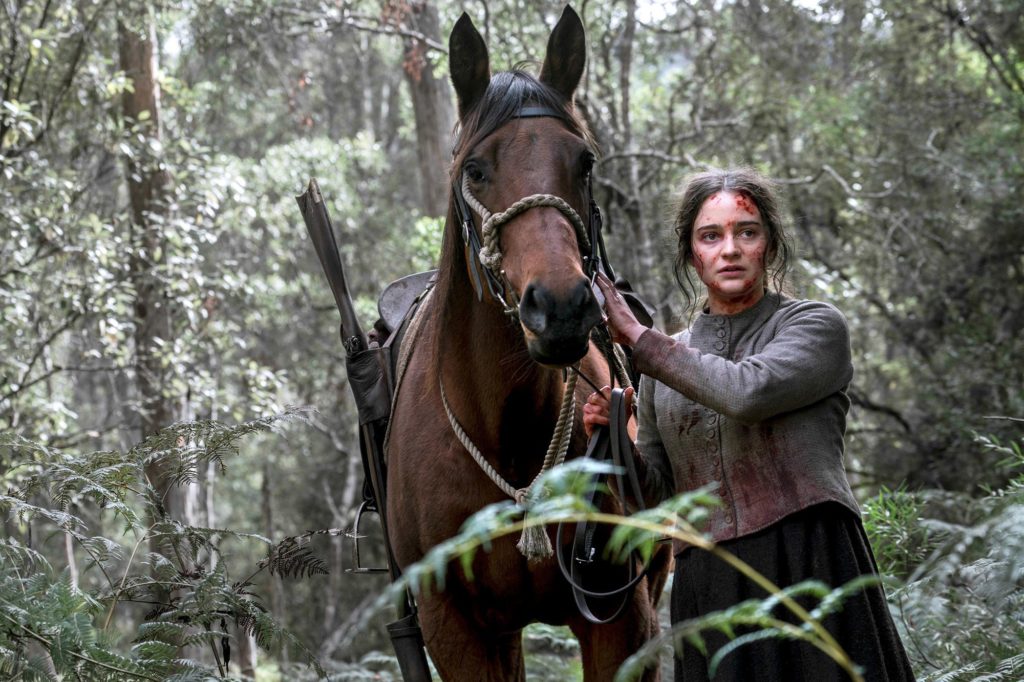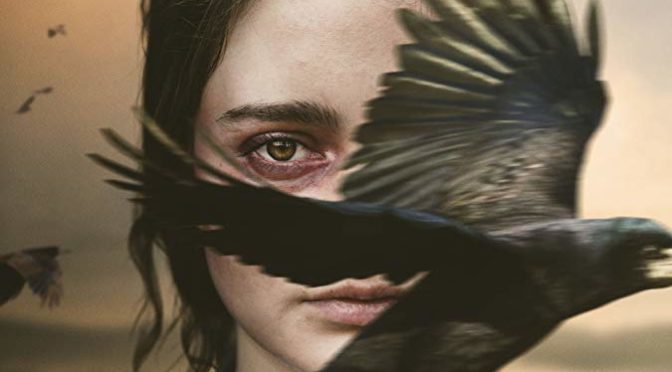After her promising debut with The Babadook, Australian director Jennifer Kent has stayed close to home with her sophomore effort. The Nightingale takes place during the Black War period in the early 1800s on Tasmania. The British have entered the area and used it as a penal colony. Clare (Aisling Franciosi; The Fall), a convict, works a servant for the British Army and lives with her husband, also a convict, and their baby. She is tormented by Lieutenant Hawkins (Sam Claiflin; My Cousin Rachel), the local ranking officer, who makes unwanted advances towards her. When she asks for a approval letter that would allow her and her family to move, he brutally assaults her. A further act of violence is committed shortly after and it leaves Clare with nothing on her mind but revenge.
There will be complaints about the heinous acts on display. Clare is victimized and Kent does not shy away from depicting her suffering. In the film’s most uncomfortable scene, Kent places the camera, and the viewers, directly in Clare’s perspective. In this shot, the image shows nothing, but says everything. The camera only jostles as Clare’s pain and powerlessness is passed directly onto the audience with unsettling efficacy. These scenes, and there are multiple, are cruel, but necessary for the plot and character development.

The plight of the natives is also a major topic for the film. As Clare seeks to find and punish Hawkins and his cronies, she enlists the help of an Aboriginal tracker, Billy (Baykali Ganambarr), to help her navigate the wilderness. Clare’s prejudice, and that of her fellow colonists, is immediately apparent. They talk about the Aboriginal people as wild, treacherous animals that Clare cannot trust or be left alone with for her own safety. Early on, she only refers to Billy as “Boy” and walks behind him with a rifle pointed at his back. Her condescending tone and blatant racism is difficult to process after the sympathy she has gained from her suffering. It becomes clear that as terribly as Clare has been treated, the native people of Tasmania had it much worse. Gradually, Clare and Billy learn of each other’s tragic pasts and become allies. Billy risks himself to prevent Clare from being harmed and Clare uses her position of trust as a white woman to get Billy past trigger-happy colonists, but the savagery and debasement of the Aboriginals is still a pervasive presence.
It is Kent’s uncompromising approach that carries the film. The slower pacing and unyielding camera lend weight to the actions onscreen. She creates a sense of shared suffering in the victimized characters and in the audience. This also serves to create an entirely despicable villain. Hawkins is unrepentant for his behavior and abuses everyone around him with extreme entitlement. Kent spends more than enough screen time establishing the horrendous nature of his character which makes Clare’s dangerous and likely unsuccessful path to finding him necessary. With her focus on the harsh realities faced by the women and natives of Tasmania, Kent has created an unflinching and unhurried revenge story.

4/5 stars.
